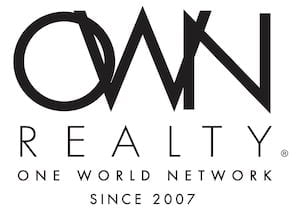1031 Exchange in New Hampshire
- Home
- 1031 Exchange in New Hampshire
Considering A Tax Deferred 1031 Exchange in New Hampshire? We are here to help!
Unlocking Tax Advantages for Real Estate Investors
In the intricate landscape of real estate investments in New Hampshire, investors are turning their attention to a strategic financial tool—the 1031 exchange. This tactical approach, also known as a tax-deferred exchange, offers a seamless method for selling a qualified property and acquiring another within a specified timeframe.
Unlike conventional sales, a “1031 exchange” treats the transaction as an exchange, providing investors with the crucial benefit of deferred gain treatment. Rooted in U.S. CODE: Title 26, §1031, this financial maneuver opens the door to tax advantages and financial optimization in the dynamic realm of the New Hampshire real estate market.
Deciphering the Dynamics of 1031 Exchange in New Hampshire:
Customized Strategies for Financial Success
Essential Nature of a 1031 Exchange: At its core, a 1031 exchange transforms a property transaction into an exchange, deviating from the traditional sale model.
This strategic shift is pivotal, qualifying investors for deferred gain treatment and shielding them from the tax obligations associated with regular property sales, as dictated by the IRS.
Mastering IRS Code and Compliance: Success in a 1031 exchange in New Hampshire requires a deep understanding of the relevant IRS code, particularly Section 1031 of the Internal Revenue Code.
Adherence to the Like-Kind Exchange Regulations is equally essential, ensuring investors not only enjoy the benefits of tax deferment but also operate within the legal and regulatory standards.
Tailoring Strategies for New Hampshire Investors:
Optimizing Financial Outcomes
Tax Mitigation in a Shifting Landscape: Given the potential rise in capital gains taxes to 20%, New Hampshire investors can strategically leverage 1031 exchanges to mitigate potential tax burdens.
By deferring taxes, investors shield a more substantial portion of their property’s value, strategically positioning themselves for sustained financial growth.
Harmonizing State and Federal Dynamics: Executing a successful 1031 exchange demands a nuanced comprehension of both state and federal tax rates.
Navigating the intricate dance between these factors is crucial, ensuring that financial gains align harmoniously with the unique tax landscape of New Hampshire.

Strategizing for Financial Triumph:
Preserving Wealth and Navigating Tax Implications
Guarding Against Tax Escalation: Failure to leverage a 1031 exchange in New Hampshire may lead to a capital gains tax payment, currently standing at 15% but potentially escalating to 20% in the future.
Proactively employing this strategic move enables investors to shield themselves from potential tax hikes, preserving financial resources for subsequent investments.
Mitigating the Impact of Depreciation: The IRS’s annual depreciation of capital real estate investments at 3% poses a prolonged challenge for investors.
A meticulously executed 1031 exchange provides a practical solution, allowing investors to reinvest the entire proceeds into a “like-kind” property and mitigating the adverse effects of depreciation.
Strategic Execution for Long-Term Prosperity:
Empowering New Hampshire Investors in a Dynamic Market
In the dynamic and ever-evolving real estate market of New Hampshire, a well-executed 1031 exchange stands as a strategic cornerstone. Beyond immediate tax benefits, this approach empowers property owners to navigate tax dynamics, preserve wealth, and unlock financial opportunities.
Those who grasp the full potential of the 1031 exchange in New Hampshire are positioned not only to optimize their tax positions but also to cultivate enduring financial success in the evolving real estate landscape.
Why Consider a 1031 Exchange in New Hampshire?
Maximizing Gains through Tactical Financial Navigation
Future-Proofing Investments: New Hampshire investors are well-advised to consider a 1031 exchange as a strategic shield against potential future tax increases.
With the looming possibility of a rise in capital gains taxes to 20%, engaging in a 1031 exchange now becomes a forward-thinking move, future-proofing investments and ensuring a more robust financial portfolio.
Comprehensive Understanding of Marginal Tax Rates: Executing a successful 1031 exchange in New Hampshire necessitates a comprehensive understanding of both state and federal marginal tax rates.
This knowledge is instrumental in calculating the potential tax savings and optimizing the financial impact of the exchange. Investors who navigate these rates judiciously position themselves to reap the full benefits of this tax-deferred strategy.
Tailoring Strategies for New Hampshire Investors:
Optimizing Financial Outcomes (Continued)
Guarding Against Tax Escalation: Failure to leverage a 1031 exchange in New Hampshire may lead to a capital gains tax payment, currently standing at 15% but potentially escalating to 20% in the future.
Proactively employing this strategic move enables investors to shield themselves from potential tax hikes, preserving financial resources for subsequent investments.
Mitigating the Impact of Depreciation: The IRS’s annual depreciation of capital real estate investments at 3% poses a prolonged challenge for investors.
A meticulously executed 1031 exchange provides a practical solution, allowing investors to reinvest the entire proceeds into a “like-kind” property and mitigating the adverse effects of depreciation.
Strategic Execution for Long-Term Prosperity:
Empowering New Hampshire Investors in a Dynamic Market (Continued)
Diversification through Like-Kind Properties: The flexibility inherent in a 1031 exchange allows investors not only to defer taxes but also to diversify their real estate portfolio.
By reinvesting in like-kind properties, investors can strategically position themselves to weather market fluctuations, ensuring a resilient and diverse investment portfolio.
Timing the Market Advantageously: Successful navigation of a 1031 exchange in New Hampshire involves strategic timing. Engaging in this financial maneuver when property values are poised for growth can amplify the returns on investment, maximizing the financial advantages of the exchange.
Strategizing for Financial Triumph:
Preserving Wealth and Navigating Tax Implications (Continued)
Mitigating the Impact of Depreciation: Beyond tax considerations, the 1031 exchange in New Hampshire serves as a robust strategy to counteract the impact of depreciation.
By facilitating the seamless transition from one property to another, investors can maintain the vitality of their investments and proactively address the challenges posed by depreciation over time.
Holistic Wealth Preservation: The overarching goal of a 1031 exchange is not merely tax deferment but holistic wealth preservation.
Through meticulous planning and execution, investors can preserve and enhance their wealth, laying the foundation for sustained financial success in the ever-evolving real estate landscape of New Hampshire.

The Significance of a 1031 Exchange:
Navigating State-Specific Regulations: New Hampshire investors engaging in a 1031 exchange should be attuned to state-specific regulations that may impact the process.
Understanding any unique requirements or considerations in the New Hampshire real estate landscape ensures a smooth and compliant exchange, maximizing the benefits within the state’s legal framework.
Leveraging Local Expertise: Collaborating with local real estate professionals and financial experts familiar with the intricacies of the New Hampshire market is a strategic move.
Their insights and understanding of regional dynamics can be invaluable, guiding investors to make well-informed decisions throughout the 1031 exchange process.
Strategic Alignment with Investment Goals:
Tailoring Approaches for Optimal Outcomes (Continued)
Capitalizing on Market Trends: New Hampshire’s real estate market is dynamic, influenced by various economic factors.
Investors utilizing a 1031 exchange have the opportunity to capitalize on prevailing market trends. By aligning their exchange with these trends, investors can amplify returns and position themselves advantageously in the evolving real estate landscape.
Holistic Portfolio Enhancement: Beyond tax advantages, a 1031 exchange in New Hampshire offers investors a chance to holistically enhance their real estate portfolio.
Whether focusing on residential, commercial, or specialized properties, the exchange allows for strategic portfolio adjustments to meet evolving investment objectives.
Strengthening Financial Resilience:
Safeguarding Wealth in an Ever-Changing Market (Continued)
Securing Long-Term Financial Resilience: As the real estate market in New Hampshire responds to economic shifts, a well-executed 1031 exchange contributes to long-term financial resilience.
By strategically reinvesting in properties positioned for sustained growth, investors fortify their financial standing against market fluctuations.
Seizing Opportunities for Growth: The 1031 exchange is not only a defensive strategy but a proactive approach to seizing opportunities for growth.
New Hampshire investors can leverage this financial tool to expand their real estate holdings strategically, ensuring they are well-positioned to capitalize on emerging opportunities in the market.
Embrace the Future: Elevate Your Financial Journey with 1031 Exchange in New Hampshire.
Continued Prosperity Awaits the Visionary Investor.
Discover Your Path to Wealth Preservation
Power of 1031 Exchanges
Are you ready to embark on a financial journey that could reshape your real estate investments? Look no further! At Sapphire Investment Solutions, we specialize in turning the complex world of 1031 exchanges into a streamlined, wealth-building opportunity.


 Call us today:
Call us today: